全球焦點!石油巨頭正在為下一次油價暴跌做好準(zhǔn)備
石油巨頭一直在創(chuàng)造創(chuàng)紀(jì)錄的高利潤,但這并沒有改變它們的資本紀(jì)律,因為它們正在為下一次油價暴跌做好準(zhǔn)備
標(biāo)準(zhǔn)普爾500指數(shù)的能源板塊自今年年初以來已經(jīng)下跌5%,反映出人們對經(jīng)濟(jì)衰退將拉低油價的擔(dān)憂
運營成本上升、利率上升以及石油和天然氣價格下跌等因素表明,石油巨頭的好時光或?qū)⒑芸炀鸵Y(jié)束
 【資料圖】
【資料圖】
中國石化新聞網(wǎng)訊 據(jù)油價網(wǎng)2023年5月9日報道,石油巨頭從去年的能源危機(jī)中賺取的巨額現(xiàn)金已成為傳奇故事。
無論是用暴利稅來威脅石油行業(yè),還是被活動人士用來給已經(jīng)被妖魔化的石油行業(yè)形象增添更多細(xì)節(jié),這樣的武器都不再特別奏效。
與此同時,石油行業(yè)一直保持低調(diào),降低了資本支出。由于油氣公司尋求為下一次價格暴跌做好準(zhǔn)備,資本自律的趨勢似乎已在油氣行業(yè)中根深蒂固。
《華爾街日報》本周報道稱,標(biāo)準(zhǔn)普爾500指數(shù)中最大的7家油氣公司的現(xiàn)金總額已超過800億美元。僅埃克森美孚公司一家公司的現(xiàn)金儲備就接近300億美元。雪佛龍公司的現(xiàn)金儲備超過156億美元。石油巨頭中規(guī)模最小的依歐格資源公司也擁有超過50億美元的現(xiàn)金儲備。
“石油巨頭一直在分紅。這是一個標(biāo)志,”能源投資公司Tortoise的董事總經(jīng)理Rob Thummel如是告訴《華爾街日報》記者,“但現(xiàn)在除了股息,還有多余的現(xiàn)金可以用來回購股票。”
這就是過去幾年,尤其是去年,能源股保持高位的原因。投資者可能越來越關(guān)注氣候變化,但當(dāng)他們看到回報時,他們?nèi)匀豢梢砸庾R到這才是“真實回報”。他們在能源股中看到了這一點。
另一方面,這些能源股的發(fā)行商知道,正如雪佛龍公司首席財務(wù)官皮埃爾·布雷伯所說,“石油巨頭的好時光不會長久,它們正在儲備現(xiàn)金,以備當(dāng)前的好時光結(jié)束。好時光結(jié)束的時間可能比預(yù)期的要早。 ”
英國《金融時報》在最近的一份報告中指出,自今年年初以來,標(biāo)準(zhǔn)普爾500指數(shù)的能源板塊下跌了5%,而整體指數(shù)上漲了8%。油價在一個月內(nèi)每桶下跌了約10美元。對經(jīng)濟(jì)衰退的恐懼情緒高漲,這對能源股造成了傷害,而這些股票即使在經(jīng)濟(jì)不景氣的時候也能帶來一定的回報。
在某種程度上,這種情況有點荒謬,正如美國能源咨詢和分析公司PetroNerds首席執(zhí)行官特里莎·柯蒂斯所描述的那樣,“這些石油巨頭在虧損的時候股價很高”。柯蒂斯對英國《金融時報》表示,“現(xiàn)在石油巨頭賺了大錢,卻得不到回報。”
據(jù)一些人說,人們擔(dān)心隨著油價下跌,能源公司將開始削減股息,其中一些公司的股息是可變的。似乎并非所有投資者都對此感到高興。但是,在大型石油公司和小型石油公司也現(xiàn)金充裕之際,對能源股的懷疑還有一個更大的因素。
達(dá)拉斯聯(lián)邦儲備銀行第一季度能源調(diào)查的一位受訪者在評論部分表示:“據(jù)估計,油田作業(yè)成本增加了30%~40%,借款利息費用也增加了,天然氣價格急劇下跌,加上原油價格下跌,導(dǎo)致現(xiàn)金流明顯減少。”
同一位受訪者表示:“外部投資者似乎對碳?xì)浠衔锸チ伺d趣并指出全球經(jīng)濟(jì)和地緣政治前景的不確定性。我們預(yù)計,在一個周期性的行業(yè)中,會有另一個‘混過去’的時期,更多的參與者將被淘汰。”
英國《金融時報》援引的美國能源信息署(EIA)公布的數(shù)據(jù)顯示,除了成本上漲和油井生產(chǎn)率下降外,聲譽因素似乎比以往任何時候都更重要。達(dá)拉斯聯(lián)邦儲備銀行調(diào)查的受訪者表示,外部投資者正在對石油和天然氣失去興趣。PetroNerds的柯蒂斯表示:“市場和投資者仍然對石油和天然氣感到不安。這些公司的價值并沒有按照它們的資產(chǎn)或它們的產(chǎn)品來計算。”
在這樣的背景下,至少在美國經(jīng)濟(jì)和全球經(jīng)濟(jì)前景變得更加明朗之前,沒有什么比讓股息保持接近、現(xiàn)金儲備保持更接近更有意義的了。
李峻 編譯自 油價網(wǎng)
原文如下:
Oil Majors Are Preparing For A Difficult Period
· The oil majors have been making record-high profits, but that hasn’t altered their capital discipline as they prepare for the next oil price rout.
· The energy segment of the S&P 500 has shed 5% since the start of the year, reflecting a fear that a recession will drive oil prices lower.
· The combination of higher operating costs, increased interest rates, and a drop in both oil and gas prices suggests the good times may soon be at an end.
The piles of cash Big Oil made from last year"s energy crunch have become the stuff of legend. They have also become a weapon in the hands of governments that like to have a scapegoat handy.
The weapon hasn"t been particularly effective, whether used to threaten the oil industry with windfall profit taxes or deployed by activists to add more detail to the already demonized image of the industry.
The industry, meanwhile, has kept its head down and its capital spending lower. The capital discipline trend appears to have become entrenched in oil and gas as companies seek to be prepared for the next price rout.
The Wall Street Journal reported this week that the seven largest oil and gas companies on the S&P 500 have accumulated a combined cash amount topping $80 billion. Exxon alone has a cash stash of close to $30 billion. Chevron has over $15.6 billion. EOG, the smallest among the big, has over $5 billion. And they are keeping it.
"They"ve paid dividends forever. That"s been a hallmark," Rob Thummel, managing director at energy investment firm Tortoise, told the WSJ. "But now there"s excess cash beyond dividends to do buybacks."
That"s what"s helped keep energy stocks high in the past couple of years and especially last year. Investors may be getting more climate-conscious, but they can still recognize a return when they see it. And they see it in energy stocks.
The issuers of those energy stocks, on the other hand, know that, as Chevron"s CFO Pierre Breber put it, "good times don"t last" and are conserving cash for when the current crop of good times ends. Which might be sooner than expected.
The energy segment of the S&P 500 has shed 5% since the start of the year while the broader index has added 8%, the Financial Times noted in a recent report. Oil prices have dropped by some $10 per barrel over a month. Fear of recession is running high and hurting energy stocks—those same stocks that carry with them the promise of certain returns, even in bad times.
In a way, the situation is kind of absurd, as described by PetroNerds" chief executive Trisha Curtis: "These companies had high share prices when they were losing money," Curtis told the FT. "Now they are making money hand over fist and not being rewarded."
According to some, there is concern that with lower oil prices, energy companies will start cutting their dividend—those of them that have made said dividend variable. It seems not all investors are happy about it. But there is a bigger factor for the energy stock skepticism that is emerging at a time when Big Oil and smaller operators too are flush with cash.
"An estimated 30–40 percent cost increase in field operations, increased interest charges on borrowed money, a drastic collapse in natural gas prices combined with lower crude oil prices produced a noticeable lower cash flow," one respondent to the Q1 Dallas Fed Energy Survey said in the comments section.
"Outside investors seem to be losing interest in hydrocarbons," the same respondent said, also noting the uncertain outlook on the global economy and geopolitics. "We expect another "muddle through" period in a cyclical business where more players will be winnowed out."
Besides cost inflation and lower well productivity, according to EIA data cited by the FT, the reputational factor appears to be stronger than ever. According to that Dallas Fed Survey respondent, outside investors are losing interest in oil and gas. According to PetroNerds"s Curtis, "The market and investors are still uncomfortable with oil and gas. The companies are not being valued to their assets or what they"re producing."
In a context like this, there is little that makes as much sense as keeping your dividends close and your cash pile closer, at least until some more clarity emerges about the future of the U.S. economy and the wider world.
(責(zé)任編輯:黃振 審核:蔣文娟 )標(biāo)簽:
-
 全球焦點!石油巨頭正在為下一次油價暴跌做好準(zhǔn)備 石油巨頭一直在創(chuàng)造創(chuàng)紀(jì)錄的高利潤,但這并沒有改變它們的資本紀(jì)律,因為它們正在為下一次油價暴跌做好
全球焦點!石油巨頭正在為下一次油價暴跌做好準(zhǔn)備 石油巨頭一直在創(chuàng)造創(chuàng)紀(jì)錄的高利潤,但這并沒有改變它們的資本紀(jì)律,因為它們正在為下一次油價暴跌做好 -
 微軟推送新版Win11了嗎?支持USB4管理界面嗎? 微軟新版Win11支持自適應(yīng)亮度控制,下半年新設(shè)備井噴今年的iPhone 15系列全線放棄Lightning接口,轉(zhuǎn)向U
微軟推送新版Win11了嗎?支持USB4管理界面嗎? 微軟新版Win11支持自適應(yīng)亮度控制,下半年新設(shè)備井噴今年的iPhone 15系列全線放棄Lightning接口,轉(zhuǎn)向U -
 ChatGPT 標(biāo)注指南來了!數(shù)據(jù)是關(guān)鍵 Datawhale干貨作者:太子長琴,算法工程師,Datawhale成員前言ChatGPT剛剛出來時,業(yè)內(nèi)人士一致認(rèn)為高質(zhì)量
ChatGPT 標(biāo)注指南來了!數(shù)據(jù)是關(guān)鍵 Datawhale干貨作者:太子長琴,算法工程師,Datawhale成員前言ChatGPT剛剛出來時,業(yè)內(nèi)人士一致認(rèn)為高質(zhì)量 -
 旅游熱、酒店忙、餐飲旺,服務(wù)業(yè)求才若渴 環(huán)球速遞 旅游熱、酒店忙、餐飲旺,消費服務(wù)行業(yè)用工需求持續(xù)增長,“求才若渴”。由于消費服務(wù)業(yè)用人需求存在不確定
旅游熱、酒店忙、餐飲旺,服務(wù)業(yè)求才若渴 環(huán)球速遞 旅游熱、酒店忙、餐飲旺,消費服務(wù)行業(yè)用工需求持續(xù)增長,“求才若渴”。由于消費服務(wù)業(yè)用人需求存在不確定 -
 每日看點!會計和出納的分工及工作流程_會計和出納的分工 1、我就在機(jī)關(guān)工作啦,這個的話,簡單點講。2、出納就是要在外面跑,會計就是要在家里算……出納涉及到和銀
每日看點!會計和出納的分工及工作流程_會計和出納的分工 1、我就在機(jī)關(guān)工作啦,這個的話,簡單點講。2、出納就是要在外面跑,會計就是要在家里算……出納涉及到和銀 -
 win10邁克菲怎么樣(win10邁克菲怎么關(guān)閉) 全球資訊 1、打開邁克菲軟件,在主頁面選擇【導(dǎo)航】-【防火墻】-【關(guān)閉】,然后在您想何時恢復(fù)防火墻中,選擇【從不
win10邁克菲怎么樣(win10邁克菲怎么關(guān)閉) 全球資訊 1、打開邁克菲軟件,在主頁面選擇【導(dǎo)航】-【防火墻】-【關(guān)閉】,然后在您想何時恢復(fù)防火墻中,選擇【從不
-
導(dǎo)游詞開場白有哪些?小學(xué)研學(xué)團(tuán)導(dǎo)游開場白都在這兒 導(dǎo)游詞開場白篇1大家好我是你們的導(dǎo)游,岳導(dǎo)游。歡迎光臨世界文化遺產(chǎn)——頤和園。很榮幸為大家服務(wù)。現(xiàn)
-
 證明夫妻感情破裂的證據(jù)如何收集?感情不合離婚彩禮在什么法定的情況下需要退? 一、感情不合離婚彩禮用退嗎感情不合離婚彩禮在法定的情況下需要退:1 雙方辦理結(jié)婚登記手續(xù)但確未共同生活;2 婚前給付并導(dǎo)致給付人生活困
證明夫妻感情破裂的證據(jù)如何收集?感情不合離婚彩禮在什么法定的情況下需要退? 一、感情不合離婚彩禮用退嗎感情不合離婚彩禮在法定的情況下需要退:1 雙方辦理結(jié)婚登記手續(xù)但確未共同生活;2 婚前給付并導(dǎo)致給付人生活困 -
 法院離婚調(diào)解書可以反悔嗎條件有哪些 起訴離婚不開庭調(diào)解有用嗎? 法院離婚調(diào)解書可以反悔嗎法院離婚調(diào)解書一般不可以反悔。因為,離婚調(diào)解書的效力與法院判決書的效力是
法院離婚調(diào)解書可以反悔嗎條件有哪些 起訴離婚不開庭調(diào)解有用嗎? 法院離婚調(diào)解書可以反悔嗎法院離婚調(diào)解書一般不可以反悔。因為,離婚調(diào)解書的效力與法院判決書的效力是 -
 結(jié)婚登記審查都有什么內(nèi)容?婚姻登記處須有管轄權(quán)嗎? 一、丟失結(jié)婚證補(bǔ)辦需要什么手續(xù)丟失結(jié)婚證補(bǔ)辦需要的手續(xù)如下:1 雙方持有本人的常住戶口簿和居民身份證,到男女其中一方婚姻登記處辦理2
結(jié)婚登記審查都有什么內(nèi)容?婚姻登記處須有管轄權(quán)嗎? 一、丟失結(jié)婚證補(bǔ)辦需要什么手續(xù)丟失結(jié)婚證補(bǔ)辦需要的手續(xù)如下:1 雙方持有本人的常住戶口簿和居民身份證,到男女其中一方婚姻登記處辦理2 -
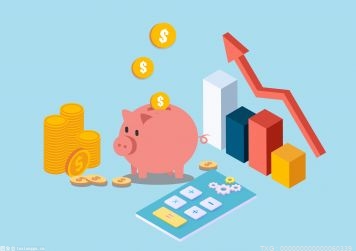 基金賣出份額和金額一樣嗎?基金份額賣出怎么算金額? 不一樣,賣出份額是指所賣出的基金份額數(shù)量,賣出金額則是指賣出基金的總價值,只有基金的凈值等于1元時
基金賣出份額和金額一樣嗎?基金份額賣出怎么算金額? 不一樣,賣出份額是指所賣出的基金份額數(shù)量,賣出金額則是指賣出基金的總價值,只有基金的凈值等于1元時 -
 離婚時哪些財產(chǎn)屬于夫妻共同財產(chǎn)呢?夫妻共同財產(chǎn)繼承范圍有哪些? 近期,民政局發(fā)布了2019年國家登記結(jié)婚和離婚的數(shù)據(jù),2019年近900萬人登記結(jié)婚,而離婚的人數(shù)竟然也有67
離婚時哪些財產(chǎn)屬于夫妻共同財產(chǎn)呢?夫妻共同財產(chǎn)繼承范圍有哪些? 近期,民政局發(fā)布了2019年國家登記結(jié)婚和離婚的數(shù)據(jù),2019年近900萬人登記結(jié)婚,而離婚的人數(shù)竟然也有67 -
 微軟推送新版Win11了嗎?支持USB4管理界面嗎? 微軟新版Win11支持自適應(yīng)亮度控制,下半年新設(shè)備井噴今年的iPhone 15系列全線放棄Lightning接口,轉(zhuǎn)向U
微軟推送新版Win11了嗎?支持USB4管理界面嗎? 微軟新版Win11支持自適應(yīng)亮度控制,下半年新設(shè)備井噴今年的iPhone 15系列全線放棄Lightning接口,轉(zhuǎn)向U -
 個人成立基金公司需要什么條件呢?買基金在哪里買比較劃算? 1、基金公司有公司規(guī)章以及營業(yè)場所,還要有健全的內(nèi)部管理制度;2、基金公司的注冊資本不少于一億人民幣
個人成立基金公司需要什么條件呢?買基金在哪里買比較劃算? 1、基金公司有公司規(guī)章以及營業(yè)場所,還要有健全的內(nèi)部管理制度;2、基金公司的注冊資本不少于一億人民幣 -
 妻雙方感情破裂離婚 孩子和房子怎么分?收集離婚的證據(jù)的方式都有哪些? 一、婚姻破裂判定標(biāo)準(zhǔn)婚姻破裂判定標(biāo)準(zhǔn)大致如下:1 重婚或有配偶者與他人同居的。2 實施家庭暴力或虐待、遺棄家庭成員的。實施家庭暴力是指
妻雙方感情破裂離婚 孩子和房子怎么分?收集離婚的證據(jù)的方式都有哪些? 一、婚姻破裂判定標(biāo)準(zhǔn)婚姻破裂判定標(biāo)準(zhǔn)大致如下:1 重婚或有配偶者與他人同居的。2 實施家庭暴力或虐待、遺棄家庭成員的。實施家庭暴力是指 -
 如何選擇靠譜的理財平臺呢?如何判斷理財哪個平臺相比較靠譜? 如何選擇靠譜的理財平臺呢?一、了解理財公司的風(fēng)險管控措施壞賬率是衡量一個網(wǎng)貸平臺對于風(fēng)險控制的重要
如何選擇靠譜的理財平臺呢?如何判斷理財哪個平臺相比較靠譜? 如何選擇靠譜的理財平臺呢?一、了解理財公司的風(fēng)險管控措施壞賬率是衡量一個網(wǎng)貸平臺對于風(fēng)險控制的重要 -
 懷孕后孕酮偏低怎么辦?孕酮低了有什么危害? 懷孕后孕酮偏低怎么辦?1懷孕初期應(yīng)當(dāng)依照醫(yī)囑進(jìn)行體檢,孕酮低的孕婦,應(yīng)當(dāng)按時上醫(yī)院打黃體胴。2安宮黃
懷孕后孕酮偏低怎么辦?孕酮低了有什么危害? 懷孕后孕酮偏低怎么辦?1懷孕初期應(yīng)當(dāng)依照醫(yī)囑進(jìn)行體檢,孕酮低的孕婦,應(yīng)當(dāng)按時上醫(yī)院打黃體胴。2安宮黃 -
 辦理結(jié)婚登記需要什么證件?沒有登記結(jié)婚不受法律保護(hù)嗎? 一、沒有登記結(jié)婚受法律保護(hù)嗎沒有登記結(jié)婚不受法律保護(hù)。現(xiàn)在法律上已經(jīng)不承認(rèn)事實婚姻。婚姻一定要去領(lǐng)結(jié)婚證,不要去相信合同,這是非法
辦理結(jié)婚登記需要什么證件?沒有登記結(jié)婚不受法律保護(hù)嗎? 一、沒有登記結(jié)婚受法律保護(hù)嗎沒有登記結(jié)婚不受法律保護(hù)。現(xiàn)在法律上已經(jīng)不承認(rèn)事實婚姻。婚姻一定要去領(lǐng)結(jié)婚證,不要去相信合同,這是非法 -
 djvu是什么格式文件?djvu格式的文件怎么打開? djvu是什么格式文件?djvu也是一種圖像文檔格式,也就是我們所說的電子書格式,和PDF格式類似,需要通過d
djvu是什么格式文件?djvu格式的文件怎么打開? djvu是什么格式文件?djvu也是一種圖像文檔格式,也就是我們所說的電子書格式,和PDF格式類似,需要通過d -
 離婚手續(xù)怎么辦理流程是什么?沒離婚財產(chǎn)轉(zhuǎn)移給孩子有效嗎? 離婚手續(xù)怎么辦理流程是什么?協(xié)議離婚:1、離婚的男女雙方共同到一方常住戶口的區(qū)、縣級市民政局(或鎮(zhèn)人
離婚手續(xù)怎么辦理流程是什么?沒離婚財產(chǎn)轉(zhuǎn)移給孩子有效嗎? 離婚手續(xù)怎么辦理流程是什么?協(xié)議離婚:1、離婚的男女雙方共同到一方常住戶口的區(qū)、縣級市民政局(或鎮(zhèn)人 -
 股市休息時間是什么時候?股市年底什么時候停盤? 股市休息時間是什么時候?一般來說,中國股市的交易時間是周一至周五,滬深兩市的開市和收盤時間是一樣的
股市休息時間是什么時候?股市年底什么時候停盤? 股市休息時間是什么時候?一般來說,中國股市的交易時間是周一至周五,滬深兩市的開市和收盤時間是一樣的 -
 欠銀行錢不還會坐牢嗎?信用卡逾期兩個月會被起訴嗎? 欠銀行錢不還會坐牢嗎?1、欠銀行錢不還會不會坐牢要看具體的情況,就算欠銀行錢被起訴了,那么法院判決
欠銀行錢不還會坐牢嗎?信用卡逾期兩個月會被起訴嗎? 欠銀行錢不還會坐牢嗎?1、欠銀行錢不還會不會坐牢要看具體的情況,就算欠銀行錢被起訴了,那么法院判決 -
 qdii基金是什么意思?qdii基金3點前買入凈值咋算? qdii基金是什么意思?qdii基金指在一個國家設(shè)立并經(jīng)國家有關(guān)部門批準(zhǔn),在海外證券市場從事股票和債券證券
qdii基金是什么意思?qdii基金3點前買入凈值咋算? qdii基金是什么意思?qdii基金指在一個國家設(shè)立并經(jīng)國家有關(guān)部門批準(zhǔn),在海外證券市場從事股票和債券證券 -
 準(zhǔn)生證的期限是多長時間?沒有登記結(jié)婚是不可以辦準(zhǔn)生證的嗎? 一、沒有登記結(jié)婚可以辦準(zhǔn)生證嗎沒有登記結(jié)婚是不可以辦準(zhǔn)生證的。但是現(xiàn)在全國都取消了準(zhǔn)生證,實行生育登記服務(wù)制度,生育兩個以內(nèi)的孩子
準(zhǔn)生證的期限是多長時間?沒有登記結(jié)婚是不可以辦準(zhǔn)生證的嗎? 一、沒有登記結(jié)婚可以辦準(zhǔn)生證嗎沒有登記結(jié)婚是不可以辦準(zhǔn)生證的。但是現(xiàn)在全國都取消了準(zhǔn)生證,實行生育登記服務(wù)制度,生育兩個以內(nèi)的孩子 -
 新三板指數(shù)如何理解?新三板指數(shù)基金是什么? 新三板指數(shù)如何理解?新三板指數(shù)是反映新三板市場整體行情的指標(biāo)。它由中國證券投資基金業(yè)協(xié)會(CIFA)
新三板指數(shù)如何理解?新三板指數(shù)基金是什么? 新三板指數(shù)如何理解?新三板指數(shù)是反映新三板市場整體行情的指標(biāo)。它由中國證券投資基金業(yè)協(xié)會(CIFA) -
 離婚登記辦理流程是怎樣的?沒離婚財產(chǎn)轉(zhuǎn)移給孩子有效嗎? 離婚登記辦理流程是怎樣的?協(xié)議離婚:1、離婚的男女雙方共同到一方常住戶口的區(qū)、縣級市民政局(或鎮(zhèn)人民
離婚登記辦理流程是怎樣的?沒離婚財產(chǎn)轉(zhuǎn)移給孩子有效嗎? 離婚登記辦理流程是怎樣的?協(xié)議離婚:1、離婚的男女雙方共同到一方常住戶口的區(qū)、縣級市民政局(或鎮(zhèn)人民 -
 乳液和面霜的區(qū)別是什么?補(bǔ)水乳液的主要功效是什么? 乳液和面霜的區(qū)別首先就使用方法而言,乳液的使用會有更加簡潔一些,直接在洗完臉之后,輕輕的拍打在臉
乳液和面霜的區(qū)別是什么?補(bǔ)水乳液的主要功效是什么? 乳液和面霜的區(qū)別首先就使用方法而言,乳液的使用會有更加簡潔一些,直接在洗完臉之后,輕輕的拍打在臉 -
 qe4是什么意思?中立倉是什么意思? 美聯(lián)儲宣布推出第四輪量化寬松QE4,每月采購450億美元國債,替代扭曲操作,加上QE3每月400億美元的的寬
qe4是什么意思?中立倉是什么意思? 美聯(lián)儲宣布推出第四輪量化寬松QE4,每月采購450億美元國債,替代扭曲操作,加上QE3每月400億美元的的寬 -
 離婚證所需要的照片都需要什么要求?離婚證照片的尺寸是多大? 離婚證照片的尺寸要求,必須是2寸大小的即可。離婚證所需要的照片必須是具有相同的底色的正面彩色免冠二
離婚證所需要的照片都需要什么要求?離婚證照片的尺寸是多大? 離婚證照片的尺寸要求,必須是2寸大小的即可。離婚證所需要的照片必須是具有相同的底色的正面彩色免冠二 -
 什么是呼吸睡眠暫停綜合癥?呼吸強(qiáng)迫癥是什么? 什么是呼吸睡眠暫停綜合癥呼吸睡眠暫停綜合癥是因鼻炎、巨舌癥、扁桃體肥大引起的疾病。患者主要表現(xiàn)出
什么是呼吸睡眠暫停綜合癥?呼吸強(qiáng)迫癥是什么? 什么是呼吸睡眠暫停綜合癥呼吸睡眠暫停綜合癥是因鼻炎、巨舌癥、扁桃體肥大引起的疾病。患者主要表現(xiàn)出 -
 諾基亞格式化命令是什么?諾基亞格式化卡失敗怎么回事? 諾基亞格式化命令是什么?1、軟格:在手機(jī)上輸入* 7370 之后要求你輸入鎖碼,初始密碼是:12345,如果你
諾基亞格式化命令是什么?諾基亞格式化卡失敗怎么回事? 諾基亞格式化命令是什么?1、軟格:在手機(jī)上輸入* 7370 之后要求你輸入鎖碼,初始密碼是:12345,如果你 -
 股市休息時間是什么時候?股票一般什么時候閉市? 股市休息時間是什么時候?一般來說,中國股市的交易時間是周一至周五,滬深兩市的開市和收盤時間是一樣的
股市休息時間是什么時候?股票一般什么時候閉市? 股市休息時間是什么時候?一般來說,中國股市的交易時間是周一至周五,滬深兩市的開市和收盤時間是一樣的 -
 期貨爆倉是什么意思?強(qiáng)制平倉是不是全虧了 期貨爆倉是什么意思?期貨爆倉,簡單來說就是指期貨賬戶因保證金不足而導(dǎo)致的歸零,是投資者平倉了結(jié)持倉
期貨爆倉是什么意思?強(qiáng)制平倉是不是全虧了 期貨爆倉是什么意思?期貨爆倉,簡單來說就是指期貨賬戶因保證金不足而導(dǎo)致的歸零,是投資者平倉了結(jié)持倉 -
 違反夫妻忠實義務(wù)的情形是什么?夫妻間忠誠協(xié)議滿足什么條件就是有效的? 一、違反夫妻忠實義務(wù)的法律責(zé)任違反夫妻忠實義務(wù)需要承擔(dān)相應(yīng)的不利的法律后果。《民法典》在規(guī)定了夫妻之間忠實的義務(wù)的同時,還設(shè)立了對
違反夫妻忠實義務(wù)的情形是什么?夫妻間忠誠協(xié)議滿足什么條件就是有效的? 一、違反夫妻忠實義務(wù)的法律責(zé)任違反夫妻忠實義務(wù)需要承擔(dān)相應(yīng)的不利的法律后果。《民法典》在規(guī)定了夫妻之間忠實的義務(wù)的同時,還設(shè)立了對 -
 調(diào)解離婚后可以反悔嗎為什么 法院調(diào)解離婚成功多久可以拿到調(diào)解書? 調(diào)解離婚后可以反悔嗎調(diào)解離婚后可以反悔,不過應(yīng)當(dāng)在調(diào)解書生效前作出意思表示。根據(jù)我國《民事訴訟法
調(diào)解離婚后可以反悔嗎為什么 法院調(diào)解離婚成功多久可以拿到調(diào)解書? 調(diào)解離婚后可以反悔嗎調(diào)解離婚后可以反悔,不過應(yīng)當(dāng)在調(diào)解書生效前作出意思表示。根據(jù)我國《民事訴訟法 -
 奉子成婚是什么意思(奉子成婚的意思) 奉子成婚是什么意思?奉子成婚一說出自中國古代命理學(xué)著作《滴天髓》,意思是女方未婚先孕,為了掩人耳目
奉子成婚是什么意思(奉子成婚的意思) 奉子成婚是什么意思?奉子成婚一說出自中國古代命理學(xué)著作《滴天髓》,意思是女方未婚先孕,為了掩人耳目 -
 車損險到底有沒有必要買 私家車車險怎么買最劃算? 車損險到底有沒有必要買?購買車損險的關(guān)鍵,在于自修車輛的成本。若車主的車輛已經(jīng)使用多年,5年或10年
車損險到底有沒有必要買 私家車車險怎么買最劃算? 車損險到底有沒有必要買?購買車損險的關(guān)鍵,在于自修車輛的成本。若車主的車輛已經(jīng)使用多年,5年或10年 -
 申請停息掛賬影響信用嗎?信用卡逾期會有什么后果? 申請停息掛賬影響信用嗎?信用卡停息掛賬這一行為本身不會對客戶的個人信用產(chǎn)生什么不良影響,因為停息掛
申請停息掛賬影響信用嗎?信用卡逾期會有什么后果? 申請停息掛賬影響信用嗎?信用卡停息掛賬這一行為本身不會對客戶的個人信用產(chǎn)生什么不良影響,因為停息掛 -
 未到法定結(jié)婚年齡的婚姻有效嗎?未到法定結(jié)婚年齡滿足什么條件可以要回彩禮? 一、少數(shù)民族法定結(jié)婚年齡是多大少數(shù)民族法定結(jié)婚年齡是必須男年滿二十二周歲,女必須年滿二十周歲可以結(jié)婚,男女只要達(dá)到了結(jié)婚年齡就可以
未到法定結(jié)婚年齡的婚姻有效嗎?未到法定結(jié)婚年齡滿足什么條件可以要回彩禮? 一、少數(shù)民族法定結(jié)婚年齡是多大少數(shù)民族法定結(jié)婚年齡是必須男年滿二十二周歲,女必須年滿二十周歲可以結(jié)婚,男女只要達(dá)到了結(jié)婚年齡就可以 -
 申購新股如何中簽?新股申購后多久上市交易? 申購新股如何中簽想要中簽就需要提高中簽的概率,可以采取以下操作:【1】頂格申購在申購新股時都規(guī)定了
申購新股如何中簽?新股申購后多久上市交易? 申購新股如何中簽想要中簽就需要提高中簽的概率,可以采取以下操作:【1】頂格申購在申購新股時都規(guī)定了 -
 天氣丹滋養(yǎng)液適合什么人群使用呢?天氣丹滋養(yǎng)液的成分有哪些? 天氣丹系列護(hù)膚品適用于任何膚質(zhì)的人群,其成分采自植物精粹,質(zhì)地溫和,即使是敏感性肌膚的人群也可以
天氣丹滋養(yǎng)液適合什么人群使用呢?天氣丹滋養(yǎng)液的成分有哪些? 天氣丹系列護(hù)膚品適用于任何膚質(zhì)的人群,其成分采自植物精粹,質(zhì)地溫和,即使是敏感性肌膚的人群也可以 -
 什么情況下子女可以不履行贍養(yǎng)義務(wù)?子女拒絕贍養(yǎng)父母會承擔(dān)的法律后果是什么? 一、子女拒絕贍養(yǎng)父母會承擔(dān)什么法律后果子女拒絕贍養(yǎng)父母會承擔(dān)的法律后果:承擔(dān)相應(yīng)的民事法律責(zé)任,情節(jié)惡劣構(gòu)成遺棄罪。根據(jù)《中華人民
什么情況下子女可以不履行贍養(yǎng)義務(wù)?子女拒絕贍養(yǎng)父母會承擔(dān)的法律后果是什么? 一、子女拒絕贍養(yǎng)父母會承擔(dān)什么法律后果子女拒絕贍養(yǎng)父母會承擔(dān)的法律后果:承擔(dān)相應(yīng)的民事法律責(zé)任,情節(jié)惡劣構(gòu)成遺棄罪。根據(jù)《中華人民 -
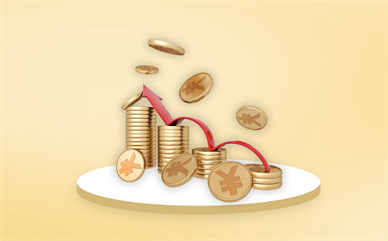 寶武董事長陳德榮談重組怎么說?現(xiàn)在寶武集團(tuán)有多少職工? 寶武董事長陳德榮談重組怎么說?寶武聚焦融合行動學(xué)習(xí)新鋼集團(tuán)專業(yè)化整合培訓(xùn)第一次集中學(xué)習(xí)在寶武大廈舉
寶武董事長陳德榮談重組怎么說?現(xiàn)在寶武集團(tuán)有多少職工? 寶武董事長陳德榮談重組怎么說?寶武聚焦融合行動學(xué)習(xí)新鋼集團(tuán)專業(yè)化整合培訓(xùn)第一次集中學(xué)習(xí)在寶武大廈舉 -
 女子舉重是從什么時候開始的?舉重減肥的優(yōu)勢是什么? 女子舉重是從什么時候開始的雖然在剛開始有很多男子舉重,但是在20世紀(jì)40年代左右時,女性的舉重就開始
女子舉重是從什么時候開始的?舉重減肥的優(yōu)勢是什么? 女子舉重是從什么時候開始的雖然在剛開始有很多男子舉重,但是在20世紀(jì)40年代左右時,女性的舉重就開始 -
 為什么安卓旗艦機(jī)都喜歡用高通驍龍?zhí)幚砥鳎柯?lián)發(fā)科到底差在哪兒? 安卓旗艦機(jī)為什么都喜歡用高通驍龍?zhí)幚砥髂?這個問題其實有很多方面可以展開討論,下面就來一一解析。首
為什么安卓旗艦機(jī)都喜歡用高通驍龍?zhí)幚砥鳎柯?lián)發(fā)科到底差在哪兒? 安卓旗艦機(jī)為什么都喜歡用高通驍龍?zhí)幚砥髂?這個問題其實有很多方面可以展開討論,下面就來一一解析。首 -
 個人成立基金公司需要什么條件呢?買基金在哪里買比較劃算? 1、基金公司有公司規(guī)章以及營業(yè)場所,還要有健全的內(nèi)部管理制度;2、基金公司的注冊資本不少于一億人民幣
個人成立基金公司需要什么條件呢?買基金在哪里買比較劃算? 1、基金公司有公司規(guī)章以及營業(yè)場所,還要有健全的內(nèi)部管理制度;2、基金公司的注冊資本不少于一億人民幣 -
 信用卡逾期五天怎么補(bǔ)救?信用卡不小心逾期了5天怎么辦? 1、 盡快還款。在發(fā)現(xiàn)自己信用卡逾期了5天時間后,一定要第一時間還清信用卡所有欠款,包括信用卡產(chǎn)生
信用卡逾期五天怎么補(bǔ)救?信用卡不小心逾期了5天怎么辦? 1、 盡快還款。在發(fā)現(xiàn)自己信用卡逾期了5天時間后,一定要第一時間還清信用卡所有欠款,包括信用卡產(chǎn)生 -
 無線充電是否會被取消?省電模式傷電池嗎? 今天我們來聊聊無線充電這個話題。無線充電是一種非常方便的充電方式,它可以使我們免去了繁瑣的插拔過
無線充電是否會被取消?省電模式傷電池嗎? 今天我們來聊聊無線充電這個話題。無線充電是一種非常方便的充電方式,它可以使我們免去了繁瑣的插拔過 -
 非法經(jīng)營罪立案標(biāo)準(zhǔn)是什么?如何認(rèn)定非法經(jīng)營罪? 非法經(jīng)營罪立案標(biāo)準(zhǔn)是什么?根據(jù)最高人民法院檢察院、公安部《關(guān)于經(jīng)濟(jì)犯罪案件追訴標(biāo)準(zhǔn)的規(guī)定》的有關(guān)規(guī)
非法經(jīng)營罪立案標(biāo)準(zhǔn)是什么?如何認(rèn)定非法經(jīng)營罪? 非法經(jīng)營罪立案標(biāo)準(zhǔn)是什么?根據(jù)最高人民法院檢察院、公安部《關(guān)于經(jīng)濟(jì)犯罪案件追訴標(biāo)準(zhǔn)的規(guī)定》的有關(guān)規(guī) -
 精神是雙魚崇高的追求 哪怕有一天吃不上飯也希望填滿靈魂的空虛?_世界播資訊 雙魚座:浪漫主義者的堅守在星座學(xué)說里出了名的浪漫的雙魚座,精神是她們崇高的追求。哪怕有一天吃不上
精神是雙魚崇高的追求 哪怕有一天吃不上飯也希望填滿靈魂的空虛?_世界播資訊 雙魚座:浪漫主義者的堅守在星座學(xué)說里出了名的浪漫的雙魚座,精神是她們崇高的追求。哪怕有一天吃不上 -
 全球焦點!石油巨頭正在為下一次油價暴跌做好準(zhǔn)備 石油巨頭一直在創(chuàng)造創(chuàng)紀(jì)錄的高利潤,但這并沒有改變它們的資本紀(jì)律,因為它們正在為下一次油價暴跌做好
全球焦點!石油巨頭正在為下一次油價暴跌做好準(zhǔn)備 石油巨頭一直在創(chuàng)造創(chuàng)紀(jì)錄的高利潤,但這并沒有改變它們的資本紀(jì)律,因為它們正在為下一次油價暴跌做好 -
 今年端午節(jié)股市放假休息嗎?端午節(jié)股市放假安排2023 端午節(jié)股市放假安排20232023(今年)端午節(jié)股市放假調(diào)休安排一覽端午節(jié):6月22日(星期四)至6月24日(星期六
今年端午節(jié)股市放假休息嗎?端午節(jié)股市放假安排2023 端午節(jié)股市放假安排20232023(今年)端午節(jié)股市放假調(diào)休安排一覽端午節(jié):6月22日(星期四)至6月24日(星期六 -
 股票分紅10派7元是什么?北交所新股申購要市值嗎? 股票分紅10派7元是什么?10派7元意思就是說每10股現(xiàn)金分紅7元,除權(quán)后現(xiàn)金會轉(zhuǎn)入相應(yīng)的股票賬戶。分紅派
股票分紅10派7元是什么?北交所新股申購要市值嗎? 股票分紅10派7元是什么?10派7元意思就是說每10股現(xiàn)金分紅7元,除權(quán)后現(xiàn)金會轉(zhuǎn)入相應(yīng)的股票賬戶。分紅派 -
 股市看盤技巧有哪些?股票看盤技巧詳解 股市看盤技巧1 看市場要注意成交的量當(dāng)市場擺脫下跌趨勢,走出一個緩慢的底部結(jié)構(gòu),成交是溫和的,投資
股市看盤技巧有哪些?股票看盤技巧詳解 股市看盤技巧1 看市場要注意成交的量當(dāng)市場擺脫下跌趨勢,走出一個緩慢的底部結(jié)構(gòu),成交是溫和的,投資 -
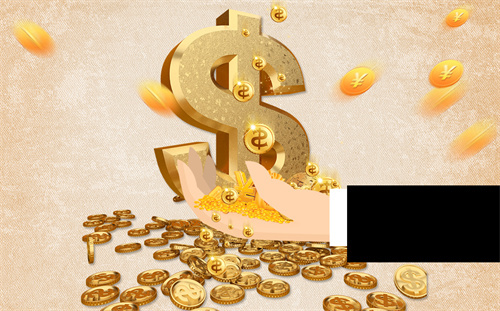 安逸花怎么查全部賬單?安逸花有額度借不出來怎么辦? 安逸花怎么查全部賬單?【1】首先需要用戶登錄安逸花官方APP;【2】然后在下方菜單欄中選擇我的,找到歷史
安逸花怎么查全部賬單?安逸花有額度借不出來怎么辦? 安逸花怎么查全部賬單?【1】首先需要用戶登錄安逸花官方APP;【2】然后在下方菜單欄中選擇我的,找到歷史 -
 寶馬天使眼是什么?寶馬天使眼是哪一年出來的? 寶馬天使眼是什么寶馬天使眼(Angel Eyes),也稱為環(huán)型日間行車燈(Halo Lights),是指寶馬車型前大燈中
寶馬天使眼是什么?寶馬天使眼是哪一年出來的? 寶馬天使眼是什么寶馬天使眼(Angel Eyes),也稱為環(huán)型日間行車燈(Halo Lights),是指寶馬車型前大燈中
熱門資訊
-
 湛江東大肛腸醫(yī)院收費貴嗎?平價收費暖人心 【湛江東大肛腸專科醫(yī)院收費 公開...
湛江東大肛腸醫(yī)院收費貴嗎?平價收費暖人心 【湛江東大肛腸專科醫(yī)院收費 公開... -
 以愛滋養(yǎng),唯愛永留傳 | 貝因美:和中國媽媽在一起 人生接受到的第一份愛,往往都是母...
以愛滋養(yǎng),唯愛永留傳 | 貝因美:和中國媽媽在一起 人生接受到的第一份愛,往往都是母... -
 兩國雙園,協(xié)同發(fā)展 ——印尼巴塘與萬信達(dá)產(chǎn)業(yè)園項目系列報道(一) 2023年5月10日兩國雙園,協(xié)同發(fā)展-...
兩國雙園,協(xié)同發(fā)展 ——印尼巴塘與萬信達(dá)產(chǎn)業(yè)園項目系列報道(一) 2023年5月10日兩國雙園,協(xié)同發(fā)展-... -
 云鯨新品來襲,具備超強(qiáng)清潔力的云鯨S1上線 近日,云鯨智能召開主題為輕而強(qiáng)勁...
云鯨新品來襲,具備超強(qiáng)清潔力的云鯨S1上線 近日,云鯨智能召開主題為輕而強(qiáng)勁...
觀察
圖片新聞
-
 漲跌停板是什么意思?漲跌停板制度的功能有哪些? 漲跌停板制度又稱為每日價格最大波...
漲跌停板是什么意思?漲跌停板制度的功能有哪些? 漲跌停板制度又稱為每日價格最大波... -
 警惕!傳播非常快,近期高發(fā)-全球觀焦點 “又發(fā)熱了”“這次是咳嗽厲害”“...
警惕!傳播非常快,近期高發(fā)-全球觀焦點 “又發(fā)熱了”“這次是咳嗽厲害”“... -
 瞰京津冀|協(xié)同發(fā)展向未來_世界報道 點擊圖片查看視頻這是京這是津這是...
瞰京津冀|協(xié)同發(fā)展向未來_世界報道 點擊圖片查看視頻這是京這是津這是... -
 “80后”二孩媽媽馬燕: 我的一周里有5個這樣匆匆忙忙的早晨…… 馬燕與兩個女兒,受訪者供圖早上6...
“80后”二孩媽媽馬燕: 我的一周里有5個這樣匆匆忙忙的早晨…… 馬燕與兩個女兒,受訪者供圖早上6...
精彩新聞
-
 兩夫婦如果一方想要更改子女的姓一定需要通過子女父母兩邊的同意嗎? 一、父母再婚孩子改姓需要哪些手續(xù)...
兩夫婦如果一方想要更改子女的姓一定需要通過子女父母兩邊的同意嗎? 一、父母再婚孩子改姓需要哪些手續(xù)... -
 血液中酒精含量每100ml達(dá)到多少算醉駕?醉駕刑事拘留一般多少天? 血液中酒精含量每100ml達(dá)到多少算...
血液中酒精含量每100ml達(dá)到多少算醉駕?醉駕刑事拘留一般多少天? 血液中酒精含量每100ml達(dá)到多少算... -
 非定向就業(yè)是什么意思?非定向就業(yè)是全日制嗎? 非定向就業(yè)是什么意思?好多小伙伴...
非定向就業(yè)是什么意思?非定向就業(yè)是全日制嗎? 非定向就業(yè)是什么意思?好多小伙伴... -
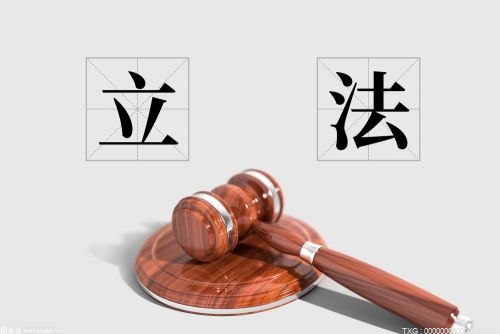 婚姻破裂判定標(biāo)準(zhǔn)是什么?感情破裂證據(jù)怎么提供? 一、婚姻破裂判定標(biāo)準(zhǔn)婚姻破裂判定...
婚姻破裂判定標(biāo)準(zhǔn)是什么?感情破裂證據(jù)怎么提供? 一、婚姻破裂判定標(biāo)準(zhǔn)婚姻破裂判定... -
 離婚協(xié)議共同撫養(yǎng)孩子可以嗎條件有哪些 離婚協(xié)議共同撫養(yǎng)費怎么算? 離婚協(xié)議共同撫養(yǎng)孩子可以嗎離婚協(xié)...
離婚協(xié)議共同撫養(yǎng)孩子可以嗎條件有哪些 離婚協(xié)議共同撫養(yǎng)費怎么算? 離婚協(xié)議共同撫養(yǎng)孩子可以嗎離婚協(xié)... -
 手機(jī)號碼停機(jī)多久會被注銷?欠費停機(jī)多久銷戶? 停機(jī)多久手機(jī)號碼會被注銷?手機(jī)號...
手機(jī)號碼停機(jī)多久會被注銷?欠費停機(jī)多久銷戶? 停機(jī)多久手機(jī)號碼會被注銷?手機(jī)號... -
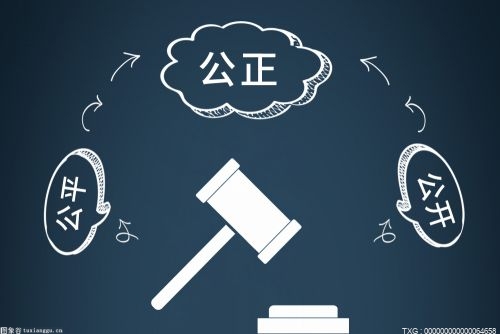 結(jié)婚登記手續(xù)辦理需要多久?結(jié)婚證身份證號碼錯誤是否有效? 一、結(jié)婚證身份證號碼錯誤還有效嗎...
結(jié)婚登記手續(xù)辦理需要多久?結(jié)婚證身份證號碼錯誤是否有效? 一、結(jié)婚證身份證號碼錯誤還有效嗎... -
 寶沃汽車為什么停產(chǎn)了?寶沃汽車是哪個國家的品牌? 寶沃汽車為什么停產(chǎn)了市場競爭:在...
寶沃汽車為什么停產(chǎn)了?寶沃汽車是哪個國家的品牌? 寶沃汽車為什么停產(chǎn)了市場競爭:在... -
 鏈家回應(yīng)下架房源什么原因?鏈家下架的房子還能找到嗎? 鏈家回應(yīng)下架房源什么原因?近期,...
鏈家回應(yīng)下架房源什么原因?鏈家下架的房子還能找到嗎? 鏈家回應(yīng)下架房源什么原因?近期,... -
 手機(jī)格式化是什么意思?手機(jī)格式化和恢復(fù)出廠設(shè)置的區(qū)別 手機(jī)格式化是什么意思?手機(jī)格式化...
手機(jī)格式化是什么意思?手機(jī)格式化和恢復(fù)出廠設(shè)置的區(qū)別 手機(jī)格式化是什么意思?手機(jī)格式化... -
 欠款人無力償還怎么辦?民事糾紛欠債無力償還怎么辦? 欠款人無力償還怎么辦?在實踐中,...
欠款人無力償還怎么辦?民事糾紛欠債無力償還怎么辦? 欠款人無力償還怎么辦?在實踐中,... -
 丟失結(jié)婚證補(bǔ)辦需要什么手續(xù)?民政局領(lǐng)結(jié)婚證流程是什么? 一、丟失結(jié)婚證補(bǔ)辦需要什么手續(xù)丟...
丟失結(jié)婚證補(bǔ)辦需要什么手續(xù)?民政局領(lǐng)結(jié)婚證流程是什么? 一、丟失結(jié)婚證補(bǔ)辦需要什么手續(xù)丟... -
 欠網(wǎng)貸多少錢以上才會被起訴?網(wǎng)商貸逾期被起訴會不會坐牢? 欠網(wǎng)貸多少錢以上才會被起訴?網(wǎng)貸...
欠網(wǎng)貸多少錢以上才會被起訴?網(wǎng)商貸逾期被起訴會不會坐牢? 欠網(wǎng)貸多少錢以上才會被起訴?網(wǎng)貸... -
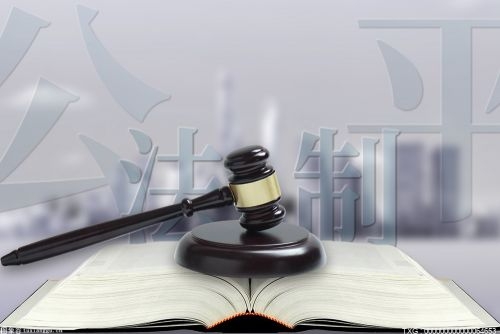 沒有登記結(jié)婚受法律保護(hù)嗎?結(jié)婚登記法定條件是什么? 一、沒有登記結(jié)婚受法律保護(hù)嗎沒有...
沒有登記結(jié)婚受法律保護(hù)嗎?結(jié)婚登記法定條件是什么? 一、沒有登記結(jié)婚受法律保護(hù)嗎沒有... -
 丹麥王國的自然環(huán)境是怎樣的?丹麥王國有什么地域文化? 丹麥王國的自然環(huán)境是怎樣的?丹麥...
丹麥王國的自然環(huán)境是怎樣的?丹麥王國有什么地域文化? 丹麥王國的自然環(huán)境是怎樣的?丹麥... -
 華為nova9充電器型號是什么?非華為標(biāo)配的充電器充電有什么后果? 華為nova9充電器型號是什么?華為no...
華為nova9充電器型號是什么?非華為標(biāo)配的充電器充電有什么后果? 華為nova9充電器型號是什么?華為no... -
 非法經(jīng)營罪立案標(biāo)準(zhǔn)是什么?如何認(rèn)定非法經(jīng)營罪? 非法經(jīng)營罪立案標(biāo)準(zhǔn)是什么?根據(jù)最...
非法經(jīng)營罪立案標(biāo)準(zhǔn)是什么?如何認(rèn)定非法經(jīng)營罪? 非法經(jīng)營罪立案標(biāo)準(zhǔn)是什么?根據(jù)最... -
 產(chǎn)前焦慮癥的表現(xiàn)癥狀有哪些?嚴(yán)重焦慮癥病癥有什么表現(xiàn)? 產(chǎn)前焦慮癥的表現(xiàn)癥狀有哪些?十月...
產(chǎn)前焦慮癥的表現(xiàn)癥狀有哪些?嚴(yán)重焦慮癥病癥有什么表現(xiàn)? 產(chǎn)前焦慮癥的表現(xiàn)癥狀有哪些?十月... -
 遠(yuǎn)方的山楂樹羅永澤結(jié)局是什么 羅永澤是什么樣的人介紹 遠(yuǎn)方的山楂樹羅永澤結(jié)局是什么《遠(yuǎn)...
遠(yuǎn)方的山楂樹羅永澤結(jié)局是什么 羅永澤是什么樣的人介紹 遠(yuǎn)方的山楂樹羅永澤結(jié)局是什么《遠(yuǎn)... -
 鍛煉小腿肌肉有什么方法?怎么鍛煉全身肌肉? 怎么鍛煉小腿肌肉鍛煉小腿肌肉可以...
鍛煉小腿肌肉有什么方法?怎么鍛煉全身肌肉? 怎么鍛煉小腿肌肉鍛煉小腿肌肉可以... -
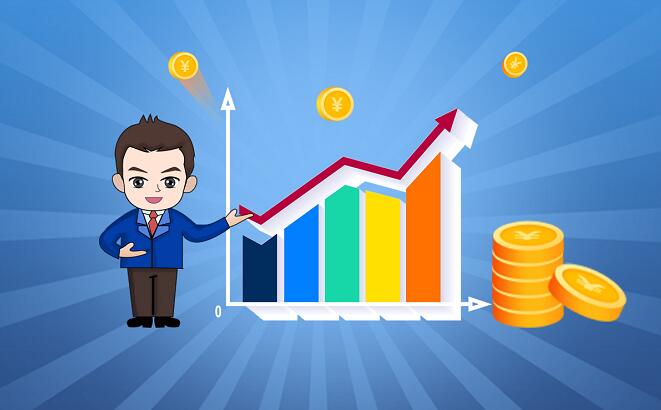 股票開盤時間是幾點到幾點?股票市盈率低好嗎? 股市什么時候開盤?滬深指數(shù)市場股...
股票開盤時間是幾點到幾點?股票市盈率低好嗎? 股市什么時候開盤?滬深指數(shù)市場股... -
 離婚協(xié)議共同撫養(yǎng)孩子可以嗎為什么 父母離婚撫養(yǎng)費給到孩子到多長時間? 離婚協(xié)議共同撫養(yǎng)孩子可以嗎離婚協(xié)...
離婚協(xié)議共同撫養(yǎng)孩子可以嗎為什么 父母離婚撫養(yǎng)費給到孩子到多長時間? 離婚協(xié)議共同撫養(yǎng)孩子可以嗎離婚協(xié)... -
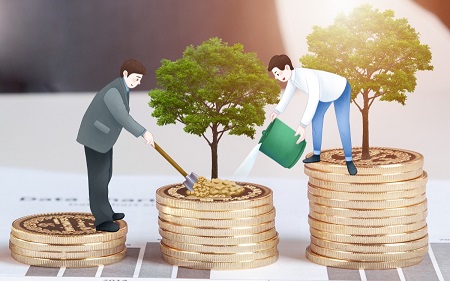 下調(diào)存款準(zhǔn)備金率影響的是什么?下調(diào)存款準(zhǔn)備金率是如何作用的? 下調(diào)存款準(zhǔn)備金率影響的是什么?貨...
下調(diào)存款準(zhǔn)備金率影響的是什么?下調(diào)存款準(zhǔn)備金率是如何作用的? 下調(diào)存款準(zhǔn)備金率影響的是什么?貨... -
 后綴名nh是什么格式文件?后綴名node的文件怎么產(chǎn)生的? 你好,后綴名NH是中國知網(wǎng)的一種電...
后綴名nh是什么格式文件?后綴名node的文件怎么產(chǎn)生的? 你好,后綴名NH是中國知網(wǎng)的一種電... -
 合同訂程序有哪些具體內(nèi)容?合同訂立的一般程序是怎樣的? 合同訂立的一般程序是怎樣的?合同...
合同訂程序有哪些具體內(nèi)容?合同訂立的一般程序是怎樣的? 合同訂立的一般程序是怎樣的?合同... -
 美瞳掉地上怎么辦?還能用嗎?美瞳粘在一起了怎么處理? 美瞳掉地上怎么辦?還能用嗎?一般來...
美瞳掉地上怎么辦?還能用嗎?美瞳粘在一起了怎么處理? 美瞳掉地上怎么辦?還能用嗎?一般來... -
 網(wǎng)貸逾期金額多少會上信用?網(wǎng)商貸還不上了怎么辦? 網(wǎng)貸逾期金額多少會上信用?一般來...
網(wǎng)貸逾期金額多少會上信用?網(wǎng)商貸還不上了怎么辦? 網(wǎng)貸逾期金額多少會上信用?一般來... -
 什么是電視購物?電視購物與電視直銷有什么區(qū)別?一文告訴你! 什么是電視購物?電視購物是指以在...
什么是電視購物?電視購物與電視直銷有什么區(qū)別?一文告訴你! 什么是電視購物?電視購物是指以在... -
 什么是工程款發(fā)票?勞務(wù)費發(fā)票和工程款發(fā)票有什么區(qū)別? 什么是工程款發(fā)票?工程款發(fā)票是在...
什么是工程款發(fā)票?勞務(wù)費發(fā)票和工程款發(fā)票有什么區(qū)別? 什么是工程款發(fā)票?工程款發(fā)票是在... -
 卓翼科技:首款毫米波 AI 傳感器完成研發(fā)交付
IT之家5月15日消息,卓翼科技在業(yè)...
卓翼科技:首款毫米波 AI 傳感器完成研發(fā)交付
IT之家5月15日消息,卓翼科技在業(yè)... -
 天然氣短缺或?qū)е路▏崮虖S停產(chǎn)真的嗎?歐洲天然氣價格短缺原因是啥? 天然氣短缺或?qū)е路▏崮虖S停產(chǎn)真...
天然氣短缺或?qū)е路▏崮虖S停產(chǎn)真的嗎?歐洲天然氣價格短缺原因是啥? 天然氣短缺或?qū)е路▏崮虖S停產(chǎn)真... -
 “雙向奔赴” 2000余留學(xué)人才參加深圳招聘會 5月13日,第十九屆留學(xué)英才招聘會...
“雙向奔赴” 2000余留學(xué)人才參加深圳招聘會 5月13日,第十九屆留學(xué)英才招聘會... -
 rundll32.exe可以刪除嗎?rundll32.exe應(yīng)用程序錯誤怎么辦? rundll32 exe可以刪除嗎?rundll32...
rundll32.exe可以刪除嗎?rundll32.exe應(yīng)用程序錯誤怎么辦? rundll32 exe可以刪除嗎?rundll32... -
 新股發(fā)行“縮量”明顯 北交所新股首日大漲227% 本周(5月15日至19日)新股發(fā)行縮量...
新股發(fā)行“縮量”明顯 北交所新股首日大漲227% 本周(5月15日至19日)新股發(fā)行縮量... -
 股票分紅的稅收一般是多少?股票分紅稅率是怎么算的呢? 股票分紅的稅收一般是多少?在股票...
股票分紅的稅收一般是多少?股票分紅稅率是怎么算的呢? 股票分紅的稅收一般是多少?在股票... -
 茶黃薊馬發(fā)生規(guī)律與生活特點體現(xiàn)在哪里? 綜合防治措施如何操作的? 茶黃薊馬發(fā)生規(guī)律與生活體現(xiàn)在哪里...
茶黃薊馬發(fā)生規(guī)律與生活特點體現(xiàn)在哪里? 綜合防治措施如何操作的? 茶黃薊馬發(fā)生規(guī)律與生活體現(xiàn)在哪里... -
 switch發(fā)送智能手機(jī)用什么掃?怎么連接手機(jī)和switch? switch發(fā)送智能手機(jī)用什么掃?怎么...
switch發(fā)送智能手機(jī)用什么掃?怎么連接手機(jī)和switch? switch發(fā)送智能手機(jī)用什么掃?怎么... -
 信用卡欠5000逾期六年有什么后果?網(wǎng)貸逾期一天如何補(bǔ)救? 信用卡欠5000逾期六年有什么后果?...
信用卡欠5000逾期六年有什么后果?網(wǎng)貸逾期一天如何補(bǔ)救? 信用卡欠5000逾期六年有什么后果?... -
 一兩黃金等于多少克?黃金回收多少錢一克? 一兩黃金等于多少克一兩黃金等于多...
一兩黃金等于多少克?黃金回收多少錢一克? 一兩黃金等于多少克一兩黃金等于多... -
 阿里推遲香港ipo真的嗎?阿里巴巴是b2c還是c2c模式? 阿里推遲香港ipo真的嗎?有市場傳聞...
阿里推遲香港ipo真的嗎?阿里巴巴是b2c還是c2c模式? 阿里推遲香港ipo真的嗎?有市場傳聞... -
 漲跌停板是什么意思?漲跌停板制度的功能有哪些? 漲跌停板制度又稱為每日價格最大波...
漲跌停板是什么意思?漲跌停板制度的功能有哪些? 漲跌停板制度又稱為每日價格最大波... -
 交通事故次責(zé)有幾種劃分比例?交通事故主次責(zé)任比例是怎么劃分的? 交通事故次責(zé)有幾種劃分比例交通事...
交通事故次責(zé)有幾種劃分比例?交通事故主次責(zé)任比例是怎么劃分的? 交通事故次責(zé)有幾種劃分比例交通事... -
 明日方舟濯塵芙蓉怎么樣(明日方舟十大必練5星) 明日方舟濯塵芙蓉怎么樣?1 特性:...
明日方舟濯塵芙蓉怎么樣(明日方舟十大必練5星) 明日方舟濯塵芙蓉怎么樣?1 特性:... -
 衛(wèi)星天線小鍋朝哪個方向?衛(wèi)星天線小鍋怎么升級? 你好,衛(wèi)星天線接收方向有南、東南...
衛(wèi)星天線小鍋朝哪個方向?衛(wèi)星天線小鍋怎么升級? 你好,衛(wèi)星天線接收方向有南、東南... -
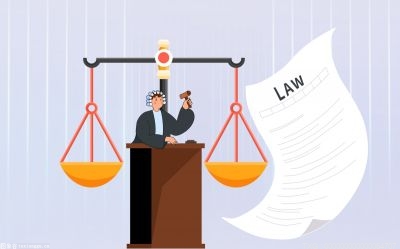 沒有拿結(jié)婚證小孩子可以上戶口嗎?未領(lǐng)結(jié)婚證離婚財產(chǎn)怎么分割? 一、沒有拿結(jié)婚證小孩子可以上戶口...
沒有拿結(jié)婚證小孩子可以上戶口嗎?未領(lǐng)結(jié)婚證離婚財產(chǎn)怎么分割? 一、沒有拿結(jié)婚證小孩子可以上戶口... - @鄭州市民,5月16日生效,事關(guān)你的駕駛證 好消息!鄭州有駕駛證的小伙伴速速...
-
 股票成交額大好不好?股票回購注銷股價會不會跌? 股票成交額大好不好?股票成交額大...
股票成交額大好不好?股票回購注銷股價會不會跌? 股票成交額大好不好?股票成交額大... -
 信用卡的逾期分為哪些類型?信用卡什么算是逾期? 1、輕微逾期如果兩年內(nèi)不超過3次逾...
信用卡的逾期分為哪些類型?信用卡什么算是逾期? 1、輕微逾期如果兩年內(nèi)不超過3次逾... -
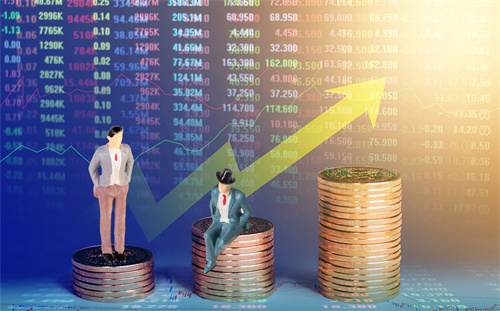 銀行無息貸款需要什么條件?銀行無息貸款是真的嗎? 銀行無息貸款需要什么條件【1】申...
銀行無息貸款需要什么條件?銀行無息貸款是真的嗎? 銀行無息貸款需要什么條件【1】申... -
 睡覺不枕枕頭好嗎(睡覺不枕枕頭有什么影響) 睡覺不枕枕頭好嗎?一般人睡覺都會...
睡覺不枕枕頭好嗎(睡覺不枕枕頭有什么影響) 睡覺不枕枕頭好嗎?一般人睡覺都會...